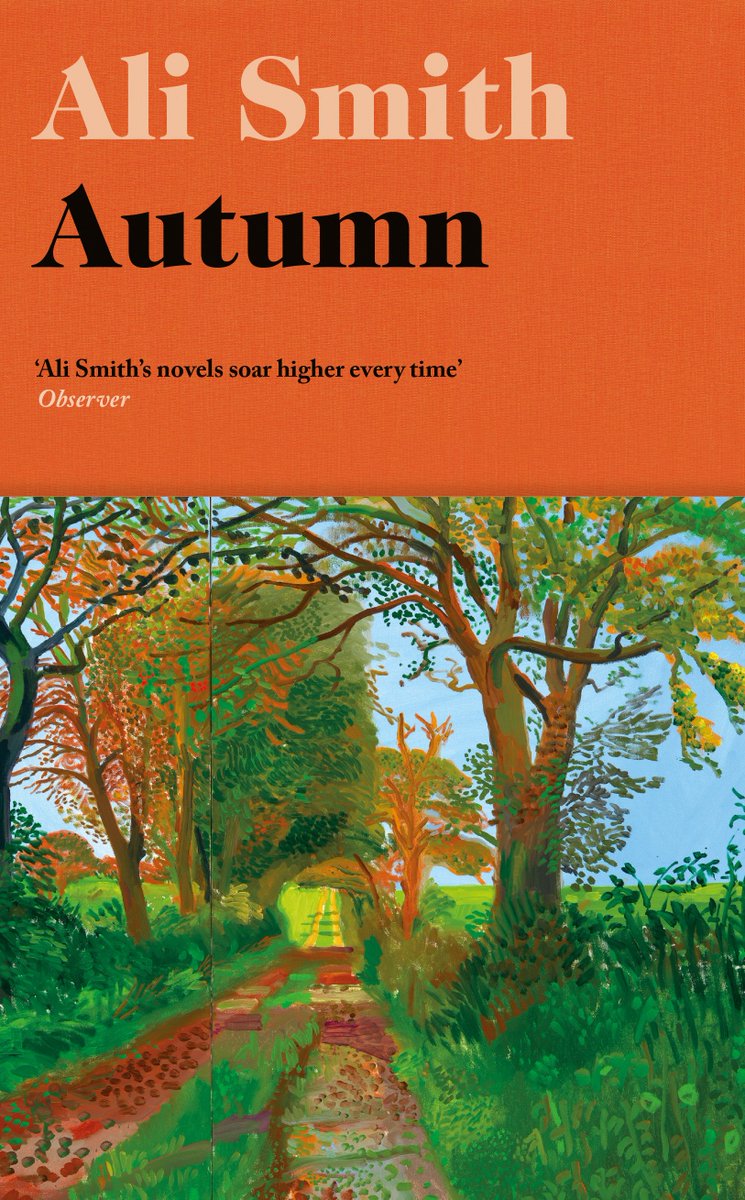Autumn by Ali Smith
(Penguin), Pp. 260
Shortlisted for
The Booker Prize and hailed as the first post Brexit novel, Ali Smith’s Autumn
shoulders a weight of expectation for a slim novel. While it stands steady on
its exquisite legs, it is also part of a series of novels due to represent all
four seasons. It recalls the ode to autumn with its mists and mellow
fruitfulness; there is a sense of melancholy but it is also suffused with hope,
colour and a love of all things bright and beautiful.
Elisabeth Demand
befriends her elderly neighbour, Daniel Gluck, and slowly learns his stories, while he
challenges her imagination and perceptions of society. Her mother is horrified
that she chooses to spend time with an adult male and cannot conceive that it
is entirely innocent. Is it? The novel flicks back and forwards through time but
with helpful explanations such as ‘It was a Tuesday evening in April in 1993.
Elisabeth was eight years old.’ Daniel described artworks and paintings to her,
including the works of the first female pop-artist, Pauline Boty.
Elisabeth later becomes a
lecturer in art history, two topics which are intrinsically intertwined. She
was told by a lecturer that there were no female pop artists and she is
determined to champion Pauline Boty, who refused to fit the boxes created for
female artists and died prematurely in 1966. With her witty collages and
subversive paintings, Boty becomes a symbol of all
those who are “Ignored. Lost. Rediscovered years later. Then ignored. Lost.
Rediscovered again years later. Then ignored. Lost. Rediscovered ad infinitum.”
Time is fluid; it is linear but cyclical; very messy and frequently repetitive.
Now Daniel is in a nursing-home coma and Elisabeth visits him, pretending to be
family: he has erotic fantasies about which she will never know. He had
experiences of the Holocaust, and there are clear parallels drawn between the treatment
of foreigners then and now.
It is
self-consciously literary and also aware of the cyclical nature of history. From
the opening line – “It was the worst of times, it was the worst of times.” – it
is clear that everyone is feeling unsettled as the country tears itself apart.
“All across the country, there was misery and rejoicing… All across the country, people felt it was the wrong thing. All across the country, people felt it was the right thing. All across the country, people felt they’d really lost. All across the country, people felt they’d really won. All across the country, people felt they’d done the right thing and other people had done the wrong thing.”
Britain has just voted to leave
the EU. Half of the village isn’t talking to the other half. A mysterious
barbed-wired compound has sprung up nearby complete with security cameras and
patrolling guards. Elisabeth’s mother, who is obsessed with antiques, decides
to get herself arrested by throwing items of historic significance at the
enclosure, “bombarding that fence with people’s histories and with the artefacts
of less cruel and more philanthropic times”. A house in which immigrants live
has the words GO HOME spray-painted on the wall. But later, the words, WE
ALREADY ARE HOME, THANK YOU have been added, and bouquets of flowers left by
supporters and well-wishers. There are seeds of hope and humanity scattered in
this forlorn and morally bereft landscape.
Ali Smith acknowledges the pain
of division and the beauty of inclusion. From nature with its seemingly
haphazard approach to procreation and fertility, to the apparent clinical approach
to grammar and semantics, she suggests that organic development will always
triumph over control. Daniel dreams of becoming imprisoned in a tree and returning
to the earth. Smith admires the polyglot of languages with words coming from
all over the world (such as an intriguing section on a book young Elisabeth
reads about a gymkhana).
